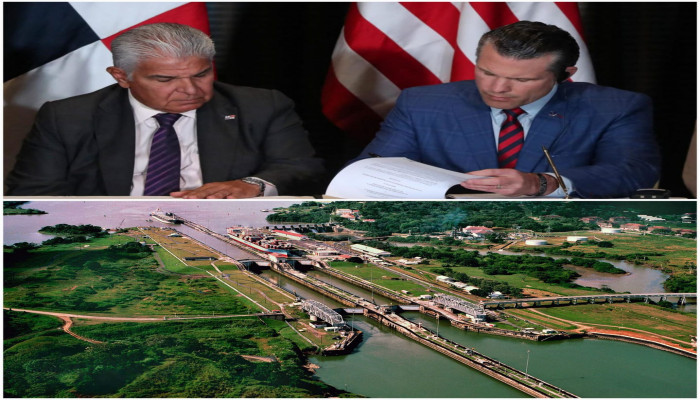U.S. troops granted access to Panama Canal bases under new Trump-era security agreement
- In Reports
- 12:49 PM, Apr 11, 2025
- Myind Staff
Under a new agreement accessed by AFP on Thursday, U.S. troops will be allowed to operate from several bases along the Panama Canal. This marks a significant win for President Donald Trump as he works to regain American influence over the strategic route. The deal, signed by senior security officials from both nations, permits U.S. military personnel to use Panama-controlled bases for training, joint exercises, and other operations.
While the agreement doesn’t go as far as letting the U.S. establish permanent military bases, something that would be highly controversial in Panama and legally complicated, it does grant the U.S. considerable flexibility to station troops at various sites, including some built during America’s earlier occupation of the canal zone.
Since returning to the office in January, Trump has repeatedly argued that China holds too much sway over the canal, which is crucial to global commerce, managing around 40% of U.S. container shipments and 5% of international trade.
The U.S. administration has pledged to regain influence over the strategically vital waterway it once financed, built, and controlled until 1999. While the U.S. has regularly taken part in military drills in Panama, establishing a more permanent rotational presence, similar to the American setup in Darwin, Australia, could be politically sensitive for Panama’s centre-right President, Jose Raul Mulino.
During a visit to Peru on Thursday, Mulino disclosed that the U.S. had requested to set up its military bases in Panama. He said he made it clear to U.S. Defense Secretary Pete Hegseth that such bases, though mentioned in an earlier draft agreement, would not be acceptable.
He made a warning toward Hegseth: “Do you want to create a mess? What we’ve put in place here would set the country on fire.”
In a toned-down “Memorandum of Understanding” signed Wednesday by Hegseth and Panama’s security chief, Frank Abrego, Panama secured some key assurances.
The U.S. formally acknowledged Panama’s sovereignty, a significant point, especially since Trump had previously refused to rule out a possible invasion. Under the agreement, Panama will maintain control over facilities and must approve troop deployments. Still, many Panamanians remain uneasy with Trump’s track record of tearing up or rewriting trade deals and agreements.
The country's relationship with the U.S. is complicated. Despite strong cultural and economic ties, memories linger of the prolonged U.S. occupation of the Canal Zone and the 35 years of invasion that ousted Manuel Noriega. That military action left over 500 Panamanians dead and parts of the capital city in ruins. Trump’s recent comments about reclaiming the canal and concerns over Chinese influence have sparked large protests across Panama.
Panama, by law, runs the canal and allows access to all countries.
However, the U.S. president has focused on a Hong Kong-based company that has managed ports at both ends of the canal, connecting the Atlantic and Pacific, for many years.
Amid pressure from the White House, Panama accused the Panama Ports Company of not honouring its contract and pushed the company to exit the country.
Last month, CK Hutchison, the company’s parent firm, revealed a $19 billion cash deal to sell 43 ports across 23 countries, including the two at the Panama Canal, to a consortium led by U.S. asset manager BlackRock. Angered by the deal, Beijing has responded by launching an antitrust investigation.







Comments